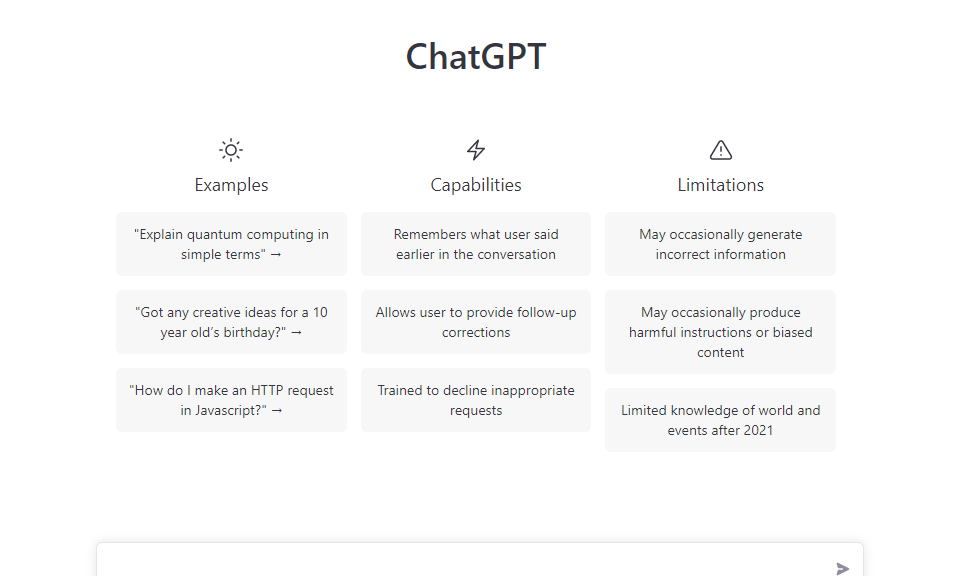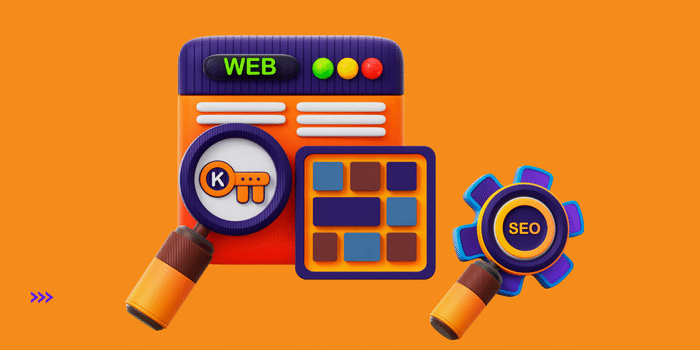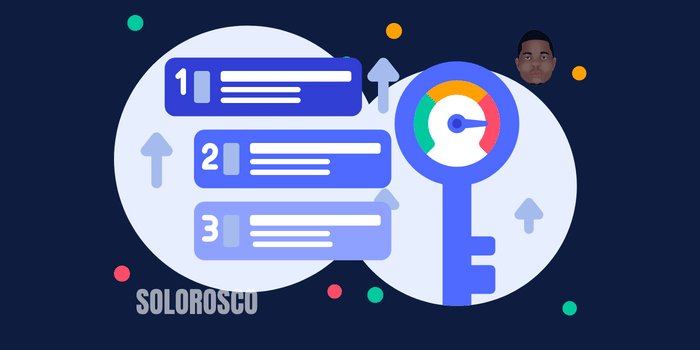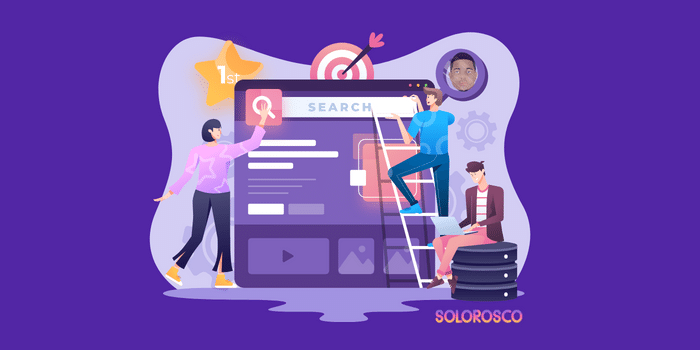Discover the game-changing Effects AI Will Have on SEO in The Future. From automating tasks to improving decision-making, learn how to stay ahead in SEO with AI.
As AI writing and artificial intelligence become more popular, it is essential to consider how they will affect SEO and copywriting.
SEOs and copywriters are becoming more interested in AI writing, artificial intelligence (AI), and large language models (LLMs) with platforms like ChatGPT.
Some might argue that AI still can’t make high-quality content (they’re wrong! ).
But technology is changing very quickly, so the amount of content being made will explode in the coming years.
At the same time, new technologies might make it harder for traditional SERP results to show a bunch of links when users are looking for short, factual answers – at least sometimes.
What is SEO?
SEO, which stands for “Search Engine Optimization,” is the process of making content rank higher in search engine results.
It involves using keywords to make content more relevant to search queries, making content easier to read to improve user engagement and experience, and making sure content is up-to-date with the latest search engine algorithms.
SEO tries to make websites more visible, get them more organic traffic, and move them up in search results.
By emphasizing readability, SEO can help create content that is more interesting and easier to understand, which can lead to more clicks and sales.
SEO also requires knowing how people use websites and keeping up with the latest SEO trends and search engine algorithms.
SEO can be a good way to get more people to visit your website and give your business a competitive edge.
How will AI Affect Search Engine Optimization in the Future?
When looking at this topic, there are some things to think about:
- Will SEO still be an important part of marketing in the future?
- Will people get answers right in the search engines, or will they have to go to the pages behind them?
- Will this make content creation less useful as an SEO strategy?
First, let’s talk about how search engines will change and why the rise of AI might not be such a bad thing for the future (for SEOs, at least).
7 Effects AI Will Have on SEO in The Future
Here are the 7 effects AI will have on SEO in the future;
- Understand your audience;
- Create unique content and new data that is not just content reproduction
- Proof of “humans” behind the content
- Structured data
- Focus on experience and user interaction
- Freshness and real-time data
- Higher domain authority and links
1. Understand your audience
SE experts should focus on making content that their target audience will find useful.
This means that the content should be tailored to the interests and needs of the target audience instead of being generic.
Since AI algorithms can find content that isn’t relevant to the user’s search query and persona.
Search engines will, as they already do, use big data analysis to figure out who their users are and show them different search results based on that.
If you search for “house addition,” you won’t get the same results whether you are a private person or a professional builder.
They will only get better at this with AI and better machine learning. Also, you should.
2. Create unique content and new data that is not just content reproduction
AI technology has become an increasingly popular tool for creating content, from keyword research to writing tools.
Despite its capabilities, AI is not yet able to create content that is distinct and original.
To stand out in a sea of future AI-generated content, SEOs must focus even more on content that is unique and engaging.
Developing research-based content, such as surveys, case studies, and original research articles can provide new, unique data, and information that will help differentiate the content from competitors and draw the attention of both search engines and users.
This type of content is more likely to earn higher search engine rankings and greater visibility.
In addition to research-based content, SEOs should also focus on creating content that is well-written and engaging, as well as content that offers a unique perspective.
Content should be backed up with facts and figures whenever possible and optimized for both search engines and users.
Finally, while AI technology is advancing quickly, it is still unable to create original content of the same quality as a human writer.
For this reason, SEOs should continue to focus on creating content that is both unique and engaging, rather than relying on AI to do the work for them.
3. Proof of “humans” behind the content
In the age of AI, it’s important to show that real people are behind the content, not algorithms or machines.
This is especially important when the content is about emotions or personal experiences, because users may want to connect with real people who can relate to their feelings and situations.
Even though the AI might be able to simulate (and even be better at) being a human writer, people still prefer to talk to real people.
As an example, the non-profit organization Koko used GPT-3 to make 30,000 peer-support messages, all of which were read by a person.
The users did not like the messages, even though they were rated higher than those without AI.
Author biographies and personal profiles may help readers trust the content’s producers.
I noticed someone wondering if #noAIinvolved or #chatgptfree may become a trend on social media postings or similar, like #nofilter on Instagram photos not enhanced with a filter/software to seem better.
4. Structured data
It is important to use structured data to make sure that search engines can find and rank content.
Structured data is a standard way to give information about a page and its content.
This makes it easier for search engines to understand the content and put it in their databases.
By using structured data, SEOs can help improve how their content is shown in search results, making it more appealing and useful to users.
Using structured data can also help content do better in voice search because it lets search engines understand the content and show it in a more natural and user-friendly way.
One argument against this point of view is that search engine algorithms will get so good and keep getting better that content won’t need to be organized in a certain way for them to understand and index it.
In the same way that technical SEO has lost some of its importance over the years, making high-quality content has become more important.
5. Focus on experience and user interaction
SEOs need to focus on making content that gives users a positive and interesting experience because there is more and more content that is similar and requires less work.
It should be well-written, easy to understand, and visually appealing.
It should also be made in a way that makes users want to interact with it.
For example, a search for “house addition” could be made better with an interactive calculator that helps users figure out how much it will cost to add to their home.
This type of content takes more work to make and is less likely to be copied by AI-generated content.
This gives it an advantage over other types of content.
ChatGPT can make code, but it can’t make something like a price calculator because it doesn’t have the data it needs to figure out prices.

But it does make making a calculator like this much easier than it was before.
Other types of interactive content could be polls, quizzes, user comments, and anything else that is useful and relevant to what the user is looking for.
And signs for web crawlers that it’s not just content that AI made.
SEOs have known for a long time that features like user comments show Google that content is current and that people are interested in it.
Getting better rankings as a result.
6. Freshness and real-time data
As one of the limits of the current generative models is the data they are trained on, content that uses newer data or other real-time data will stand out.
For example, if you are looking for the most recent news about a certain topic, AI-generated content probably won’t be able to give you the most recent news.
In this situation, SEOs should focus on making content that is regularly updated with new information.
This could be done by making content updated with the latest news or based on real-time data like stock prices or weather forecasts.
This is not a new SEO technique (part of it is called “programmatic SEO“), but I think it will become even more popular in the future.
By doing this, SEOs can make sure that their content will be ranked higher than content made by AI.
7. Higher domain authority and links
SEOs should not only focus on making high-quality content.
But also on building their domain authority and getting high-quality links from other well-known websites.
As the amount of available content proliferates.
Google and other search engines will have to rely more on domain authority and other external ranking signals to figure out which content should be given the most weight.
This means that SEOs will have to put more effort into making connections with other sites and getting links from them.
What is the future of Search Engines after AI?

Let’s see how AI will change search engine algorithms. They’ll use AI to better interpret inquiries and deliver relevant material.
Not all searches result in 1 response, however. It may browse alternatives.
Ex:
When I search “the speed of light,” I may want to know “299,792,458 meters per second.”
I could desire a recipe while googling “carrot cake recipe.”
But I may desire a certain kind. I may prefer a vegan dish or wish to be given alternatives I didn’t realize I wanted.
I may want numerous possibilities when I search for a “long winter jacket” or “Ralph Lauren Winter Jacket.“
Perfectly addressing a question might depend on UX/design choices.
Generative AI won’t beat Google alone. This will helps SEOs product results faster.
When creating material for search engines, you could look at current sites’ titles and content.
This implies that Google wants to show this material, which fits the query and user intent. To compete, provide something fresh (or better).
Google rewards fresh perspectives or information. They favour originality over plagiarism.
AI won’t affect search engines?
Yes. Google and Bing employ AI too.
Google’s main revenue model is sending traffic to other pages, so it wants an interface that encourages users to see different results and explore its sources.
NeevaAI provides this, but Google controls 84% of global search traffic.
Moving billions of daily searches will take a long time for monopoly challengers.
Google constantly evolves, tests, and innovates. Innovative and gradual. They have the muscle with 135,301 personnel (many of them engineers).
With limitless ownership, acquisitions, and cooperation with AI firms, Google will be hard to dethrone.
AI might benefit Google.
The growth of material from artists and corporations will demand additional server capacity, crawlers, content analysis, and smart algorithms.
What Do SEO Experts need to know about AI?

For one thing, it will make SEO more difficult and competitive.
Since AI can make a lot of content quickly and cheaply, there may be more competition for the top spots in search results.
There are two ways to look at this;
A) Make content that is optimized for search results driven by AI
This means you should make content that answers questions with facts.
This could be done through Frequently Asked Questions (FAQs), how-to guides, and other content that gives clear concise answers.
It has been talked about for a while in terms of voice search, where most long-term answers have been based on AI (but not creative like ChatGPT) and focused on facts.
B) Compete on the basis of quality, not quantity
In the age of AI, SEOs need to pay attention to making high-quality content.
This is nothing new, as this is already a big part of Google’s rules.
But what makes something good will change.
When it used to be enough for content to be factually correct, well-written, and cover a wide range of topics, new areas have come up.
We can see them in Google’s latest change to their E-A-T principle by adding “Experience.”
Will SEO exist in 5 years?
Yes, SEO will still exist in 5 years.
SEO will continue to be an important tool for optimizing content for search engines, even as digital marketing trends change and new technologies come out.
SEOs will need to keep up with the latest trends and use the right tools and techniques to make sure their content is optimized for the best search engine performance possible.
Is SEO dead in 2023
No, SEO is not dead in 2023.
SEO will keep changing as Google makes changes to its algorithm, making it an important part of digital marketing.
SEOs need to keep up with the latest trends and use the right tools and techniques to stay ahead of the game.
How AI can improve SEO?
AI can also help find hidden ways to improve your ranking that haven’t been used yet.
AI can help SEO by looking at website content and making changes to make it easier to read.
This can involve things like looking at readability scores, finding and fixing grammatical mistakes, and suggesting changes to improve the structure and flow of the text as a whole.
AI can also be used to research keywords and improve search engine rankings by optimizing content for targeted keywords.
Will AI replace SEO?
No, AI won’t replace SEO, but it will make the process of making websites search engine friendly better.
How can AI improve SEO news?
AI can help SEO by analyzing and optimizing news content to make it easier to read and rank higher in search engines. For example, it can do keyword research, find trending topics, and keep an eye on how people interact with news.
How Will AI Impact the Future?
The way we live and work will change because of AI.
AI has the potential to change the way we live and work in the future. It could also change how many industries work.
AI can automate boring tasks, help people make better decisions, and even create new jobs in areas like healthcare, transportation, customer service, and retail.
AI’s future is exciting, and it will be interesting to see how its abilities change and shape our world as time goes on.
Imagine a future where robots do our chores, cars drive themselves, and our phones know what we need before we even ask!
With the help of AI, we’re moving toward a world like that.
With AI by our side, the future looks bright. It will change the way we work and play, as well as improve our health and safety.
So hold on tight, because it’s going to be a wild ride!
What Should be your SEO Strategy

A good SEO plan should include researching keywords, optimizing the page itself, and building backlinks.
SEO is all about making sure that people and search engines can find your site.
To do this, you need a good SEO plan that includes researching keywords, optimizing the page itself, and building backlinks.
Researching keywords lets you know what people are looking for and how to make your content better for them.
On-page optimization means making sure your website works well technically, has good content, and is easy to use.
Getting other websites to link to your website is what building backlinks are all about. This helps to make your website more visible and authoritative.
It’s all about doing your research, making sure your website is excellent, and getting other websites to mention you.
First of all, you need to know what people are looking for and make sure your website speaks their language.
Then, it’s all about making sure your website looks good and is easy to use.
Last but not least, it’s about getting other websites to link to yours as a sign of approval.
With these steps, you’ll soon be at the top of the search engine rankings.
My Final Thought on the Effects of AI on SEO
In conclusion, AI is going to change the world of SEO in a big way in the future.
There are a lot of things that can be done, like analyzing and optimizing website content for better readability and search engine rankings, doing keyword research, finding trending topics, and keeping an eye on engagement data.
AI could also automate many manual tasks, help people make better decisions, and even create new jobs.
As AI keeps getting better, businesses and SEO professionals need to stay up-to-date and change their strategies to take advantage of these changes.
To stay ahead of the competition, a business needs to be aware of the benefits and opportunities that AI can bring to the field of SEO and use it in its marketing strategy.
As SEO continues to change, companies that use AI will be in a good position to do well in the future.
If you found this article to be interesting and helpful, don’t be shy about liking, sharing, and leaving comments.
This will help get the word out about the benefits and effects of AI in SEO.

